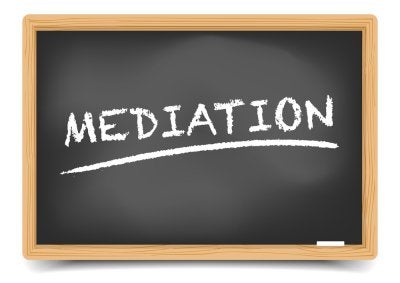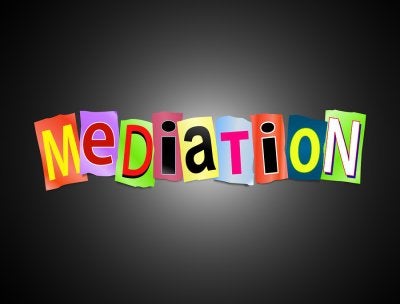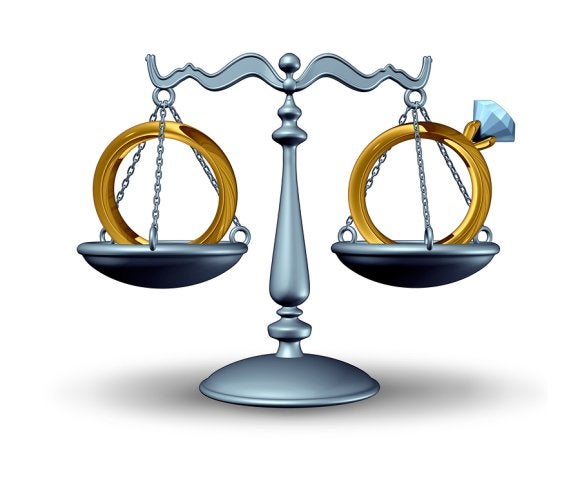-
Common Questions About Adoption Mediation
Mediation is an invaluable tool for resolving many different types of disputes, including disputes that involve adoption. Adoption mediation can help adoptive parents and birth parents reach mutually agreeable arrangements that allow them to avoid prolonged and contentious court battles. A mediation lawyer in Baltimore can assist your family in all types of circumstances, including independent adoptions, in-state and out-of-state adoptions, contested adoptions, and many others.

What is a post-adoption communication agreement?
One of the most common problems that adoptive parents encounter is post-adoption contact. An adoption could be proceeding smoothly when one or both of the birth parents abruptly demands ongoing contact with the child after the adoption. Adoptive parents should not feel pressured to immediately agree to the demands of the birth parents. Instead, they can turn to adoption mediation to resolve the conflict by producing a mutually agreeable post-adoption communication agreement. This is a written agreement that is signed by both sets of parents. The purpose of the agreement is to serve the best interests of the child. The agreement outlines the specific contact that will be allowed, including the type of contact (e.g. phone calls, visits, or letters) and the frequency of contact. If visits will be allowed, the agreement should specify the location of the visit and how long it will last. Post-adoption communication agreements, much like child visitation orders, can also make arrangements for dealing with special occasions like birthdays and holidays.
What is a contested adoption?
A contested adoption occurs when a birth parent agrees to place the child for adoption and the other birth parent objects to the adoption. Typically, the birth mother initiates adoption proceedings and the birth father later objects to them. Usually, the law grants preference to birth parents when assessing parental rights. However, adoption mediation can still be useful in contested adoption. In some cases, the objecting birth parent may decide to allow the adoption to proceed if he or she will be granted post-adoption contact.
How can adoptive parents prepare for adoption mediation?
The best way to prepare for adoption mediation is to consult the mediation lawyer. Learn what to expect from a typical mediation session, understand the goals and limitations of mediation, and consider adjusting your mindset. To reach a compromise that is in the child’s best interests, it may be necessary to be open-minded toward the needs of the other set of parents.
-
Common Reasons for Post-Divorce Mediation
Mediation can be a useful tool during divorce to settle issues with as little acrimony as possible. Whether or not mediation was part of your initial divorce, it can also be helpful in solving new issues as they arise after the divorce. Post-divorce mediation in Baltimore allows former spouses to address unforeseen circumstances without reopening old wounds and going into the process as adversaries, since mediation is focused on building agreements that are acceptable for everyone. Here are some of the many reasons people attend post-divorce mediation.

Child Support Modification
There are numerous reasons why a child support agreement may need to be modified, from job loss to increased income. When a circumstance arises that causes one parent to reopen the discussion about child support, mediation allows him or her to do so without the contentious nature of court. A mediator can help both sides lay out their opinions and work with them to build a new agreement that satisfies both sides.
Child Custody Modification
Child custody is almost always a difficult issue during divorces, and sometimes, after the final decree is issued, parents find that the agreement isn’t working. Perhaps the children want to split up their time differently or one parent feels like he or she needs more time with the children. In some cases, parents need to adjust child custody and visitation schedules because of relocations or changes in working hours. Rather than arguing over the issue in court, mediation lets parents work together on the same side to give and take on an agreement that meets both of their needs.
Alimony Modification
Sometimes, the circumstances that were in place during the original alimony ruling may change, forcing the need to modify the agreement. For instance, the spouse paying alimony may lose his or her job, changing his or her ability to pay, or a spouse receiving rehabilitative alimony may finish school early and land a lucrative job. Mediation gives both parties a place to discuss their concerns openly and collaboratively in order to come up with a solution.
-
What Is Health Care Power of Attorney?
When you give an individual power of attorney , you allow that individual to make legal, financial, or other decisions in your stead. If you choose to grant power of attorney, you may opt to turn over decision-making immediately, or only under certain circumstances. Health care power of attorney is a document that allows a person you trust to make decisions on your behalf in terms of health care and treatment options if you are unable to communicate or make these decisions for yourself. Without this document, health care decisions will fall to family members in an order specified by state law. You can find out more about granting health care power of attorney in this informative video; if you have other questions about this document or about any other aspect of estate planning or will writing, contact your lawyer in Baltimore for personalized answers and advice.
-
Understanding Mediation
Mediation services in Baltimore play an important role in dispute resolution. Mediation is an alternative to litigation when two or more parties cannot reach an agreement on their own. The parties sit down with a mediator, who is a neutral third-party. They discuss the issue, consider proposed solutions, and try to reach an agreement that does not involve having an attorney file a petition or claim in court. The mediator can draft the terms of the settlement into a written document to help prevent future disagreements on that issue.
You can hear more about mediation services by watching this introductory video. You’ll learn about some of the benefits of choosing mediation instead of litigation. You’ll also hear more about the role of the mediator. For instance, the mediator cannot force either party to accept any particular resolution. If either party is dissatisfied with the outcome of mediation, he or she could choose to pursue the matter in court.
-
Breaking Down Myths About Divorce Mediation
Mediation can be an effective way to work toward a mutually agreeable divorce settlement. The mediation process is particularly ideal for spouses who must preserve a working relationship for the sake of their children. Although mediation is frequently used for divorces, plenty of myths about the process persist. If you’re thinking about trying mediation near Baltimore, consider talking to a lawyer about what you can expect.

Myth: Divorce Mediators Are Similar to Family Therapists
Some spouses may hesitate to try mediation because of the mistaken belief that it is similar to marriage counseling or family therapy. However, mediators are not therapists, whose goal in that process is to save the marriage. The goal of mediation is to help the parties facilitate separation, resolve issues related to separation (division of property, division of debt, co-parenting, custody, visitation, child support, alimony, etc.).
Myth: Mediation Lengthens the Divorce Process
One of the most common myths about mediation is that it delays the finalization of a divorce. While this is possible, mediation usually shortens the process. When a divorce proceeding is particularly contentious, hammering out the details in court can take quite a while. On the other hand, if you and your spouse are able to reach an agreement during mediation, the mediator can draft the settlement agreement, which will speed up the divorce process..
Myth: Mediation Precludes the Need to Hire a Lawyer
Actually, lawyers can play a crucial role in mediation services. A lawyer can help you learn about your legal rights before you head into mediation as well as during the mediation process. He or she can help you through the negotiation process, suggest avenues toward settlement, and draft the settlement agreement.
Myth: One Spouse Typically Dominates Mediation Sessions
Not everyone has superb negotiating skills and an assertive personality. Fortunately, the mediation process can work for all types of people. During mediation, the neutral third-party balances the discussion to allow you and your spouse to discuss your respective positions.
Myth: Mediators Can Impose Binding Decisions
The mediation process puts control over the outcome back into the hands of each party. The mediator does not have the authority to force either party to accept a particular outcome. Sometimes, mediation fails to produce a settlement agreement. If the parties reach a roadblock on an issue, the mediator cannot act like a judge or arbitrator and resolve that issue. Instead, the parties will have to submit that issue to a judge to decide.
-
The Role of Mediation in Alimony Agreements
Maryland circuit courts encourage the use of mediation to resolve matters pertaining to family law. Divorce mediation near Glen Burnie is often intended to reach agreements regarding child custody and visitation; however, it’s also a viable option for establishing alimony agreements. A mediator can provide mediation services to help parties establish three different types of alimony.

The first type is alimony pendente lite, also known as temporary alimony. You and your spouse may agree to this type of alimony agreement to maintain the standard of living of both parties while the divorce is pending. It is not uncommon for parties who are unable to resolve all issues for a divorce to make temporary agreements pending the final resolution.
Mediation can also be helpful for establishing an agreement for rehabilitative alimony. This is the most common type of alimony awarded. It is intended to support the spouse of lesser earning capacity or formal education to rehabilitate to help the parties eliminate disparity of income. Usually one spouse will pay the other spouse alimony for a set period of time to allow the other party to complete a degree or vocational training program, or to advance in the workforce.
Less commonly, a spouse may enter into mediation with the goal of obtaining indefinite alimony, which has no distinct ending point. This situation usually occurs when one spouse is a substantial income earner while the other spouse will never be able to reach the same potential.
By using mediation to resolve alimony issues, it gives the parties flexibility and control to resolve this issue which Court does not provide. In Maryland, the Court must look to statutory factors to consider whether to award alimony or deny alimony. By the parties resolving the alimony in mediation, they can look to real issues facing the family, the financial needs and income of each spouse, what is actually needed, and what each party is willing to accept to help support their new dynamic. The parties can also decide whether to make the alimony modifiable or non-modifiable. A court only has the power to make alimony modifiable, which means either spouse could file for a modification at any time in the future (either for an extension or termination). Because no one knows what tomorrow will hold, the parties may agree on how to modify alimony should a party lose a job. The parties can also define when and how the alimony will terminate.
By parties resolving this issue in mediation and without the court intervention, the parties take control of their respective lives and reach a decision he/she can live with. This is better than putting it in the hands of a person you never met before and will never know how his/her decision impacts you and your family.
-
How Should You Handle Debt During Your Divorce?
You may already know that divorce mediation can resolve matters such as property division. But did you know that divorce mediation near Baltimore may also cover liability division? As your attorney can advise you, a person can be held liable for the debt of his or her former spouse, even if that debt was only listed under the spouse’s name. Before entering mediation, talk to your attorney about indemnity agreements, marital debt, and non-marital debt.
As you’ll learn when you watch this video, an indemnity agreement can protect you from debt liability. This video also recommends taking some other steps prior to entering into mediation and finalizing your divorce, such as closing or freezing all accounts held jointly with your spouse.
You may also wish to consult with an divorce attorney with experience regarding bankruptcy. Some spouses are known to enter into these indemnity agreements and then file bankruptcy.
-
Highlighting the Advantages of Mediation
Litigation is often thought of as being the primary method of resolving disputes. However, it isn’t always necessary to enter a courtroom to reach a resolution. Mediation near Anne Arundel County is often an effective, non-contentious way of coming to a mutually beneficial agreement. If you would like in-depth information about the mediation process , you should consult a mediator who has experience in this area and appointed by the Circuit Court for Anne Arundel County for domestic mediations.
Mediation Can Resolve Many Types of Disputes
You might already know that some couples choose divorce mediation instead of divorce litigation. Divorce mediation is preferable to some individuals because it is, among other things, confidential and cost-effective. However, mediation is a versatile tool that can resolve a wide range of disputes. You should consider mediation if you are having post-divorce issues related to property or finances, child custody mediation, and business dispute mediation. Mediation can be used to resolve essentially any type of non-criminal dispute. For example, an individual might use mediation to resolve problems with his or her neighbor.
mediation to resolve problems with his or her neighbor. The Parties Retain Control Over the Process
When individuals resort to litigation to resolve disputes, they turn control of the matter over to the judge who has never met the parties before and will not remember the parties if he/she saw them in a local grocery store. It’s not uncommon for one or both parties to be dissatisfied with the judge’s decisions and orders as judges try to reach a solution he/she believes is fair and reasonable. Mediation is often preferable because both parties retain control over the decisions . Although it’s likely that both individuals will need to compromise to some extent, they both have the option to agree—or not—with the proposed solutions. If the parties do not agree, the parties can have a third party resolve the issue.Mediation Uses an Informal Approach
Another advantage of mediation is its informality compared to the litigation process. Even in civil cases, which don’t involve criminal charges, the courtroom can be an intimidating setting with objections and trying to get the judge to understand your side of the story. Many people find that they are more comfortable with mediation because the setting and the process itself are far more relaxed. The mediator is a third party neutral and can spend more time trying to understand each person’s position, and reflect that position to the other party. A mediator can use a tool called reframing whereby the mediator uses his own words to try and explain each parties position as well as pointing out the common agreements between the parties. The mediator can also use a tool called caucusing whereby he/she talks to each individual separately so that a person can openly speak his/her mind as well as discuss issues that he/she does not want stated to the other person.Mediation Promotes Harmonious Problem Solving
Resolving matters in court isn’t always a contentious process; however, it often does burn bridges. For individuals who expect to have dealings with each other going forward, mediation offers a way to work toward a more harmonious relationship in the future. This is particularly ideal for individuals who must co-parent a child, for neighbors who must continue living next to each other, and for business partners and colleagues who must continue to work with each other. Mediation is also gives an opportunity for each other to hear the other person without fearing the consequences of what is said being used against him or her. There are many success stories where mediation allowed parties to rebuild a bridge between them. -
What Is Collaborative Divorce?
Divorce is often thought of as being a highly contentious process, but it doesn’t have to be this way. For many couples, collaborative divorce is a viable option for ending a marriage in a non-antagonistic manner. If you’ve considered undergoing divorce mediation near Baltimore , then you already have a good idea of what collaborative divorce entails. In mediation, couples meet with a neutral third-party mediator to work out issues and come to mutually agreeable solutions. However, an attorney typically isn’t present during mediation.
Collaborative divorce essentially combines the best of both worlds. It allows for alternative dispute resolution with the added benefit of continuous legal counsel. When the collaborative law process begins, the attorneys for both parties sign a legal agreement that states they will not serve as the parties’ counsel during litigation, in the event that collaboration fails. Then, the parties discuss their options and goals knowing that the attorneys assisting them are focused on the parties reaching a settlement. In addition to having the lawyers present, the parties may utilize the services of mental health professional as a coach or a financial planner.. Any agreements the parties arrive at are recognized by the court.

-
FAQs about Mediation for Divorce and Custody Disputes
Divorce is always a difficult process, but for some couples, mediation can make it easier. During divorce mediation, a neutral third party can help you and your spouse negotiate an amicable end to your marriage with equitable decisions about property, finances, and child custody. Throughout the mediation process, the mediator will not provide legal advice to either party, but can answer questions about how the courts work and how to reach an ideal settlement. By choosing mediation, many couples are able to avoid some of the acrimony that can occur at the end of a marriage and maintain a healthy relationship for themselves and their children. Find out more about divorce mediation in this infographic from Mummert Law . Our experienced attorney can assist with the mediation process near Baltimore and ensure you and your spouse arrive at mutual agreements. Please help others dealing with divorce and custody issues understand this alternative to the courtroom by sharing this information.


